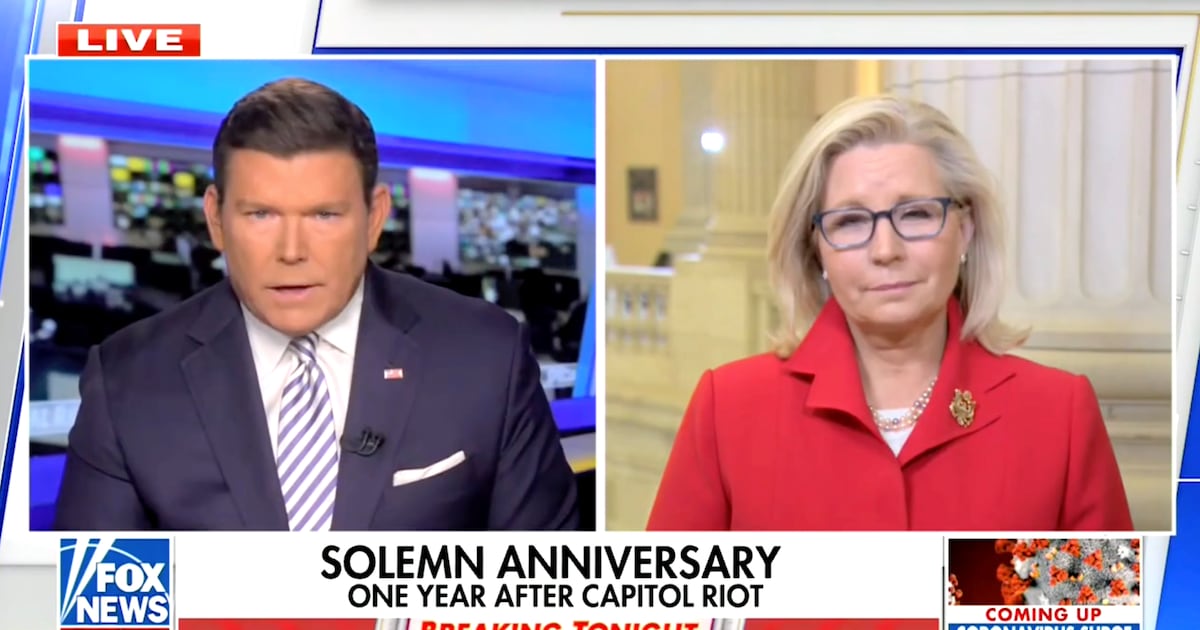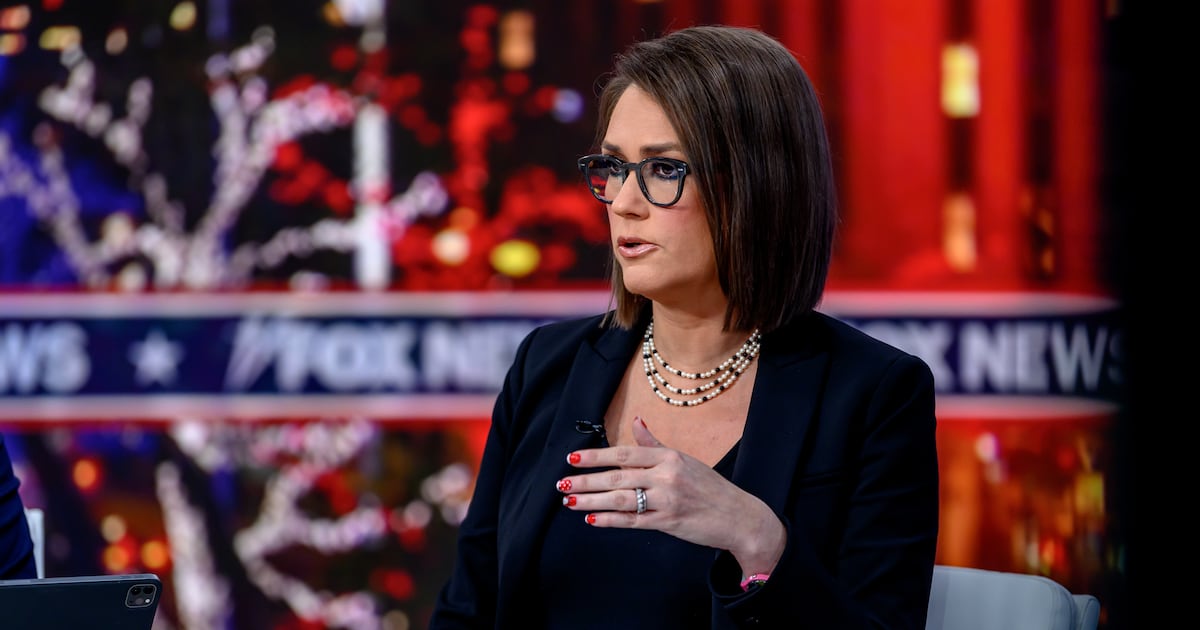Plus: Check out Book Beast, for more news on hot titles and authors—plus excerpts from the latest books.

In a charming new memoir by the “Ask Amy” columnist—in which no one gets stabbed, no one goes to rehab, and no one goes to jail—she heeds her own wisdom and finds it’s good to be the Prodigal Daughter.
If all you know about Amy Dickinson—who began her syndicated Ann Landers-esque column, “Ask Amy,” in 2003—is that she has a gentle, anti-Dr.Phil style of advice management, her new memoir The Mighty Queens of Freeville (Hyperion), will be a revelation: the book is true to that familiar voice, yet it also reveals a Dickinson who is as sophisticated as she is folksy. This, after all, was a woman who was once married to the dashing TV journalist, Anthony Mason, who went to college at Georgetown, who lived in London and Washington, D.C., a girl who grew up in tiny Freeville, N.Y., yes—but one who, even as a child, used to sit in the haystack on her family’s farm and imagine herself on The Tonight Show. Ironic, then, that as soon as she got away, she almost immediately took her toddler daughter back to the mother, sisters, and aunts who taught her the values she regularly espouses—the women her daughter christened “the mighty queens of Freeville.”
ADVERTISEMENT
That’s the thing about happy endings. I want everybody to have a happy ending.
Recently remarried (after 17 years as a single mother) to a man who grew up and still lives on a farm in her hometown, Dickinson spends three out of every four weeks in Freeville, and only about a week a month in Chicago, where her parent newspaper, the Tribune, is located. She talked about to The Daily Beast about how you can and should go home again—and why doing so has actually helped her career.
You have lived all over the world and known all kinds of people you and your family would call “fancy pants,” and yet you credit Freeville for all the good things that have happened to you. Was there ever a time when you thought you’d “left Freeville behind,” when you forgot, or wanted to forget, where you came from?
Yeah, I actually did. When I was 17 and I went off to college, I could not wait to get going. I think, now that I’m a parent myself, that I was maybe too young to leave home. . .Leaving set in motion what I can only call arrested development. I got to school and I was chronically homesick right away. As any of us matures, we put our own life in perspective. For me, it’s like the whole story of Dorothy [in The Wizard of Oz]: understanding what your home was all about. The village of Freeville is one of those scrubby little towns you drive through and wonder, “Who lives here? “ What I found was that “who lives there” are the most important people in my life.
You met your new husband when you called him to talk about renovating the house you’d bought for you and your daughter. You write that you’d had a lot of bad dates—and had even gone through relationships with other people from your past. You’d been single for 17 years. Why and how did this relationship “take”?
When we were in high school, Bruno was this rangy farm boy and I was certainly not going to have anything to do with that! But when I re-met and fell in love with him, one thing that resonated was that he had never left Freeville He had grown up on a farm, which is still lived in by his family. At middle age, the landscape really speaks to me, it’s in my own bones and it really resonated with me to be with someone who knew what I knew. Maybe you don’t want that when you’re younger. In my case, it’s a love affair with a person—but also with a place and a life.
It’s also about confidence and timing, too, right?
When you marry someone who’s successful in his own right—he runs a business, he does very well, he’s not an accessory of me—you welcome that when you’re mature enough. One of the things that drew me to him was he is a very successful person in many ways, he’s a sole custodial parent, he runs a business. He really knows how to be in a family. One of the things we really liked about each other is that we were mature, and knew how to be in relation to family members and friends. We chose to be together, not because we had some neurotic need to find happiness. That’s the thing about happy endings. I want everybody to have a happy ending. I’m having a very happy time but it really helps if you have a happy before.
Your daughter, Emily, who’s now in college, is a prominent “character” in the book. Sometimes, it seems, you come off more as friends than as parent and child. Was this ever an issue between you?
While Emily and I were a team, I was never confused about who was the parent and who was the child. Emily has an extremely different temperament from mine. I’m plucky and scrappy, and she’s reserved and centered and mature. . . She’s like the straight man. Sometimes I think the universe sent this kid into my life to straighten me up. To my credit, I got it.
How does she feel about you writing about her?
I got to know Nora Ephron, and she very kindly mentored me at a time when I had a lot of questions about writing this book—and I sought her advice, because she had written about her relationship and family. She said: First of all, don’t ever tell your daughter’s story. That belongs to her. Your story belongs to you.—so you have to get her consent and involve her in the process. This was counter to my instincts—I’m Methodist!—but I followed Nora’s very good advice. When I was writing the book proposal I involved Emily in that process. I wrote a very complete proposal, including the first two chapters. She could see very much where the book was going and she gave her consent to it. At one point, when I was writing about our family’s tendency toward “dorkitude,” I read that section to Emily and she just loved it. She even added some of the more humiliating details.
You do portray yourself as something of a dork. . .
Okay, so here’s a story. I was in book tour in Dayton. I had a gig set up to be on the local public access show of book. I walk into the high school where they’re supposed to be shooting it and I’m face to face with the AV club, 5 15 year old boys, wandering around with cameras. The interview was supposed to be conducted by their teacher, and the teacher hadn’t come to school that day. “So, I guess. . .the interview is cancelled,” one of them said. I went out into the parking lot and called my mom. “I’ve just been ditched by the AV club,” I complained. “ Again!?” she said.
Hillary Clinton said “it takes a village to raise a child.” Your book seems to suggest that it takes a village of women in particular. What do you think is the special power of women?
Women get a lot of fresh starts. One of the things that I do notice as a theme in my book is starting over. As a woman, when you marry, your life changes. When you have children, your life changes. When you enter and leave the work force, your life changes. Women can and do change on a dime. Life involves a lot of starting over. We’re faced with a lot of life’s transitions, and if you can handle those.
In the book, you allude to your bad behavior, and yet you seem to have navigated pretty solidly through your life. What “crash and burn” memories do you have?
I don’t know if I’ve made really poor choices. My upbringing and sense of self has inoculated me from some of those. I’ve had more of the, you know, slings and arrows of ordinary life: the humiliations at work, being dumped, dumping people. When I started writing this book, it was still the age of the edgy memoir: James Frey, Augusten Buroughs, people who’d had these very extreme, strange, bizarre instances and problems and issues. And I was writing this sort of celebration of ordinary life.
In the time between when I sold the book and it came out, the world has completely changed. I think my little story resonates with people who don’t have extreme issues, but are wrestling with some very serious problems due to unemployment, family tension. Those are the people, I hope, who see themselves in my life. . .
When I handed in the book, I told my editor “No one gets fat, no one goes to rehab and no one goes to jail. . . . Who’s going to want to read this sweet little story where things more or less work out?
“Everybody,” she said.
Sara Nelson is the former editor in chief of Publishers Weekly and the author of the bestselling So Many Books, So Little Time.





